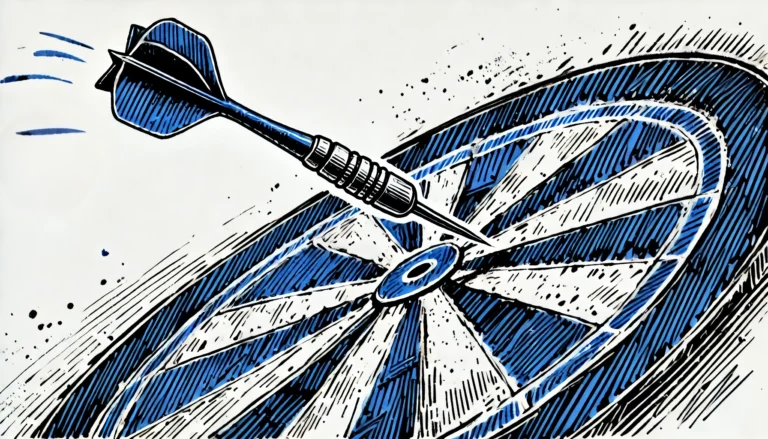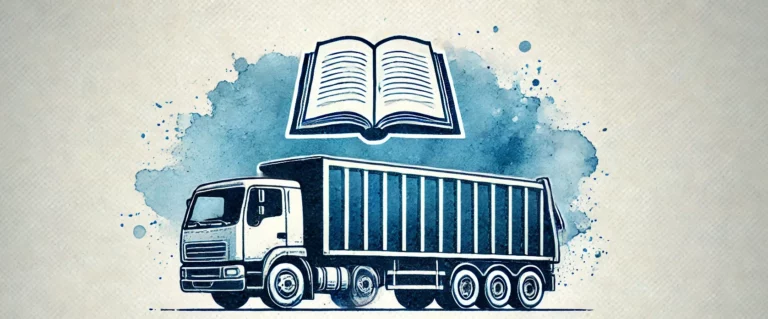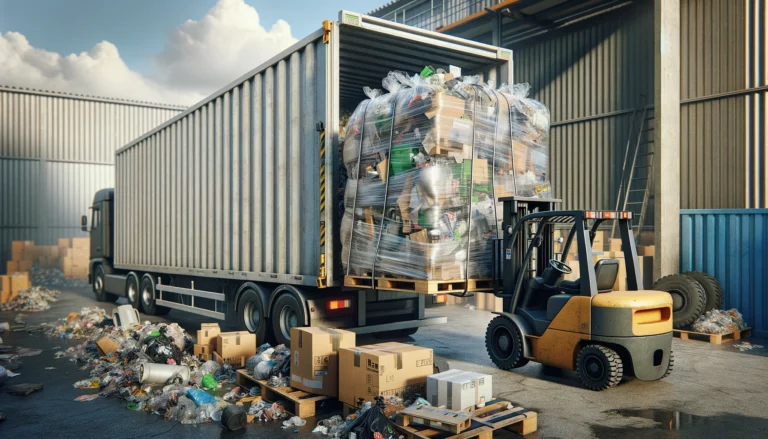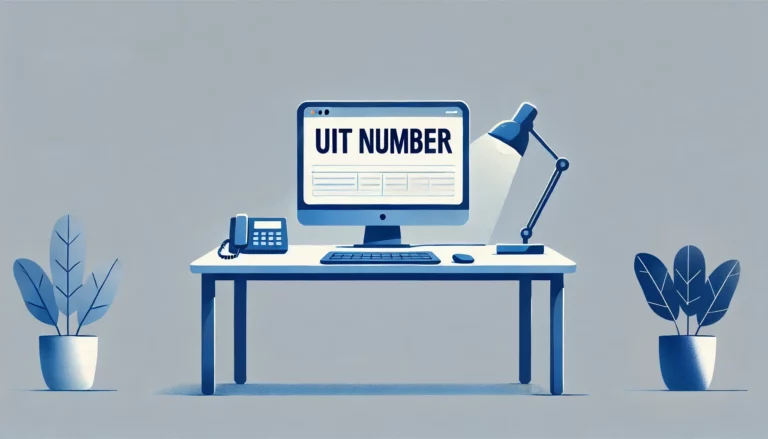Cross-border waste transport – guide
Cross-border waste transport can really pay off for transport companies looking to grow. But, it’s not simple—there are a lot of rules to follow and you need to plan carefully. This guide breaks down the key things you need to know to get into this important area of work.
First step – choose between waste types
Knowing the difference between regular waste and dangerous waste is super important for moving trash around. Regular waste is the easy stuff, like what you throw out from your house or safe stuff from factories. Dangerous waste is the nasty stuff—chemicals, asbestos, and medical waste that can really hurt people and the planet. You’ve got to be spot on in figuring out what kind of waste you’re carrying because that decides the rules you need to follow and how you handle and document it. Getting it wrong can get you into big trouble, with heavy fines and harm to the environment.
Do you want to know more about waste transport permits? Contact us:
office@wastetransportsolutions.eu
Cross-border waste transport to Germany, Poland or maybe Belgium?
Dealing with waste laws gets trickier when you’re moving stuff between European countries. Every country has its own rules about how to get rid of, treat, and move waste, based on EU rules and their own laws. Like, Germany is really strict about the paperwork for hazardous waste, but some Eastern European countries might be a bit more laid-back. It’s super important to do your homework and be ready to adjust. Knowing exactly what the rules are in the country you’re heading to can save you from expensive mistakes and legal headaches.

Documentation is key
Starting to move waste means you have to get through a bunch of different permit processes, and it’s super important if you want to stick to the environmental rules. Getting these permits can be a big headache because every country has its own way of doing things, and it usually takes a lot of time and paperwork. If you mess up your application, it could cost you a lot, like getting hit with fines, running into legal problems, or even being told you can’t carry the waste at all. It’s really important to take this seriously and maybe even get some expert advice to make sure you understand what each country wants. Getting everything sorted out ahead of time means you can avoid trouble and keep your waste transport running smoothly.
When it comes to the paperwork, what you need depends on what kind of waste you’re dealing with and where you’re going. For the regular, non-dangerous stuff, you need Annex VII documents that show where the waste came from, where it’s going, and how you plan to move it. If you’re dealing with dangerous waste, you need more detailed papers, like the Annex IA to tell everyone you’re moving it, and Annex IB to track its journey, making sure it’s safe. The best advice is to start working on getting these permits as early as you can to make the whole process a bit easier to handle.
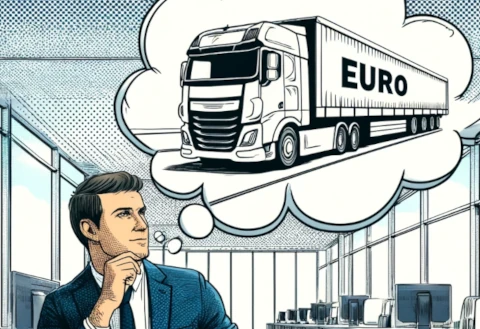
Vehicle preparation for cross-border waste transport
Getting your truck ready for waste transport isn’t just about making things run smoothly; it’s also about following the rules. Depending on what kind of waste you’re carrying, your truck might need special signs to show what’s inside, along with other safety steps. It’s a good idea to label your load clearly and make sure everything’s tied down right, even if you’re just carrying regular, non-dangerous waste, to avoid any trouble on the road.
For example, you might have seen trucks with “A” signs on them. That “A” stands for “Abfall,” which is the German word for waste. And if you’re driving around in Poland, you might see trucks with “ODPADY” on them, which means waste in Polish. But when it comes to carrying dangerous waste, instead of words, you’ll see symbols that warn about the risky stuff you’re hauling. This helps everyone stay safe and makes sure you’re doing things by the book.
How to avoid costly mistakes
Not following the rules for moving waste across borders can get you into big trouble, like having to pay a lot of money in fines. If you don’t have the right permits or if your paperwork isn’t filled out correctly, you could be looking at fines that go from a few thousand to even millions of euros. Plus, it can really hurt how people see your company.
A smart move to avoid this kind of mess is to work with a consulting firm, like Waste Transport Solutions. They’re experts in figuring out all the tricky parts of waste transport. They can help you get the permits you need, make sure you’re following all the rules, and give you advice on how to do things the best way. This kind of help can save you from a lot of headaches and keep your reputation clean.
***
Moving waste across borders has a lot of opportunities but it’s tricky because you’ve got to follow a bunch of rules about the environment and legal stuff. You need to know the difference between types of waste, follow the rules of the countries you’re going to, get the right permits, pack your shipments the right way, and make sure you’re doing everything legally. If you’re ever not sure about something, getting advice from experts like Waste Transport Solutions is a smart idea. They can help you understand the rules so you don’t run into trouble.


